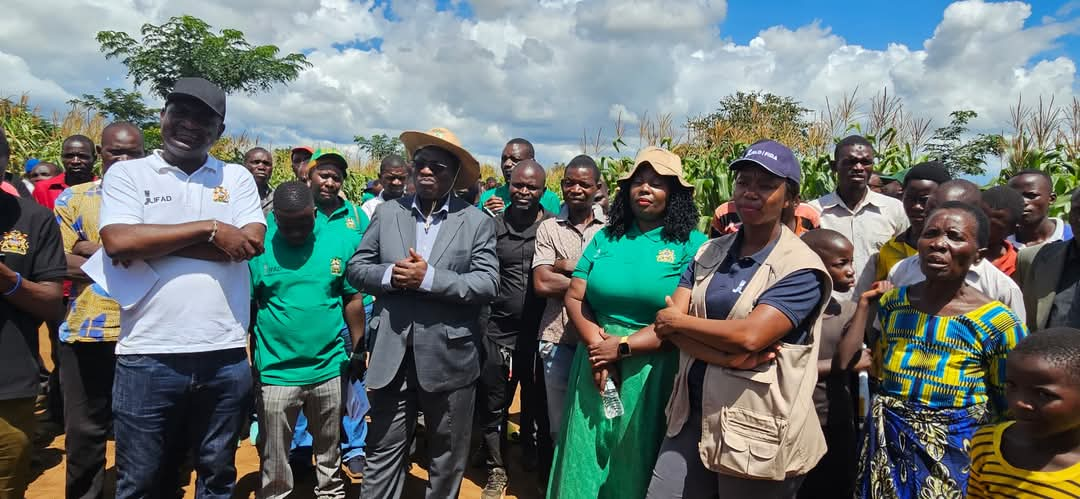By Burnett Munthali
Controller of Agriculture Extension and Technical Services in the Ministry of Agriculture, Dr. Alfred Mwenefumbo, has said that Malawi can make significant strides in agricultural transformation if farmers embrace modern technologies and innovations.
Dr. Mwenefumbo made these remarks during the Agriculture Field Day Mega Demonstration, organized under the Sustainable Agriculture Programme (SAP) II, held at Chisepo Extension Planning Area in the jurisdiction of Senior Chief Kayembe, Dowa District.
He emphasized that the active dissemination of research findings and farming innovations at the grassroots level is vital for achieving national development goals.
According to Dr. Mwenefumbo, taking research directly to communities is key to achieving the goals outlined in Malawi 2063, particularly those under the Malawi Implementation Plan (MIP-1) by 2030.
He added that aligning agricultural practices with research-backed innovations not only boosts productivity but also helps Malawi reduce its dependency on outdated methods and foreign aid.
The Mega Demonstration was part of broader efforts to bridge the gap between scientific advancements and smallholder farmers, who make up the majority of Malawi’s agricultural workforce.
The event provided a platform for farmers to interact with experts and observe first-hand how climate-smart and cost-effective technologies could be integrated into their farming practices.
Bernadette Mukonyora, a representative of the International Fund for Agricultural Development (IFAD) in Malawi, expressed satisfaction with the active participation of community members in understanding the technologies demonstrated at the event.
She commended the enthusiasm of the farmers and stakeholders, saying it was a sign that rural communities are eager to embrace change and take ownership of their agricultural transformation.
Mukonyora further revealed that the project targets 80,000 smallholder farmers, aiming to promote wealth creation, improve nutrition, and enhance food security in rural areas.
She stated that IFAD is committed to supporting sustainable agricultural programmes in Malawi that not only increase yields but also improve livelihoods and contribute to environmental resilience.
The SAP II initiative is a collaborative effort between the Government of Malawi and its development partners, including IFAD, to enhance productivity and sustainability in the agricultural sector.
Officials at the event underscored the importance of knowledge-sharing platforms like field days in strengthening farmer capacity and facilitating technology adoption.
Dr. Mwenefumbo concluded by calling on extension workers, development partners, and traditional leaders to intensify efforts in mobilizing and educating farmers to embrace these innovations for the betterment of the nation.
The Chisepo Field Day served as a vivid reminder that the future of Malawi’s agriculture lies in innovation, research dissemination, and community-level engagement.
As Malawi steers towards the aspirations of Malawi 2063, stakeholders continue to emphasize that agriculture remains the backbone of the economy and a key pillar for sustainable national development.
With growing support from both the government and international organizations, the country is poised to transform its agricultural sector and lift thousands of rural families out of poverty.




